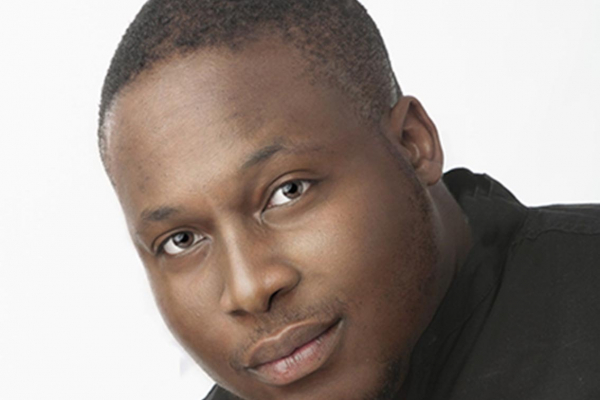
It is only befitting that the focus be on the late former Prime Minister and leader of the MDC- T, Morgan Tsvangirai, who passed away last week. We may all have varying views of his policies, actions and standpoints, but what remains undeniable is that he was a man who loved his people and his country even at great cost to himself.
By Paul Kaseke
First coming to prominence through the Zimbabwe Congress of Trade Unions (ZCTU), Tsvangirai started a brand of politics that would change the course of Zimbabwe’s history.
Before the MDC’s formation, there had hardly been any meaningful opposition to Zanu PF’s rule, but he dared go against a feared regime and push for democratic and economic reforms that would change the livelihood of the Zimbabwean people.
The most important angle he brought, in my view, was to create a culture of democracy and upholding of basic human rights that had been undermined by President Robert Mugabe’s government.
As President Emmerson Mnangagwa put it: “When we write the history of this country, we cannot leave out the participation and role that the former prime minister played in the effort to entrench democratic values in this country.”
Despite receiving death threats, being arbitrarily arrested and being tortured by the State for believing in a new Zimbabwe, he soldiered on and never surrendered to the bullying tactics of the regime. It is common cause that he was the target of State brutality, yet what is impressive is that even then, he never called his supporters to fight back and he never gave up.
He was quoted as saying: “Yes, they brutalised my flesh. But they will never break my spirit. I will soldier on until Zimbabwe is free.”
- Chamisa under fire over US$120K donation
- Mavhunga puts DeMbare into Chibuku quarterfinals
- Pension funds bet on Cabora Bassa oilfields
- Councils defy govt fire tender directive
Keep Reading
Tsvangirai literally turned the other cheek and moved on with the bigger agenda. On a personal note, I remember bumping into him at a hospital in South Africa, where I was visiting someone, who was being treated for a similarly aggressive cancer.
For a second, we doubted it was him, because when we greeted him, he was extremely humble and seemed like an ordinary citizen.
I later discovered he was also being treated in the same hospital, but his smile did not give this away.
He had a reassuring and positive look that all was something his brand of politics became synonymous with.
I have previously criticised his party and some of his decisions, but to be fair, I do this indiscriminately and do the same to Zanu PF.
That criticism, however, does not take away the fact that he was a hero and a pillar of our democracy.
He championed a cause many of us were too afraid to a better Zimbabwe. What made me respect him more is his decision not to participate in the run-off election in 2008. Anyone, who was in Zimbabwe at the time, will attest to the tense atmosphere that existed then.
The senseless killings, beatings and abductions that were the order of the day intensified after it emerged Zanu PF had lost the first round of elections.
Against this backdrop, Tsvangirai took the difficult decision not to contest in the run-off. As many have quoted, he was not going to jeopardise the lives of Zimbabweans just to get to the highest office in the land.
Bearing in mind that he won the first round of elections, any other person would have pushed on to the next round since victory had already been achieved in the first round.
It would almost certainly be guaranteed in the second round, but he chose not to contest if it meant more lives would be lost.
He did not love power enough to sacrifice his fellow citizens.
That for me, is the greatest mark of leadership he displayed.
Heroes are often seen as those who put themselves on the line for others, but there is another type of hero – one who chooses to back down if stepping up puts the lives of others on the line.
Tsvangirai was both.
Speaking of heroes, many have questioned the government’s decision not to declare the late Tsvangirai as a national hero, but for me, that brought to fore the existing criteria for hero status.
The decision to declare one a hero rests solely (at least in terms of the Act), with the President, but under Mugabe’s rule, that power was abdicated to Zanu PF’s politburo.
In this instance, the President did not confer the hero status, but chose to provide a State-assisted funeral.
While I believe he should have been declared a national hero, I do commend the government for the assistance rendered to the Tsvangirai family during his illness and with the burial arrangements. It is also reassuring that the President acknowledged the role Tsvangirai played despite their ideological and political differences.
In closing, as we head towards elections and a rebuilding of our country, let us be reminded of Tsvangirai’s words when he said: “We want peace in this country and we want national healing.”
lPaul Kaseke is a legal adviser, commentator, analyst and former law lecturer with the Wits Law School & Pearson Institute of Higher Education (formerly Midrand Graduate Institute). He serves as director and current group chair of AfriConsult Firm. Send feedback to: [email protected] or follow him on twitter @paulkasekesnr











